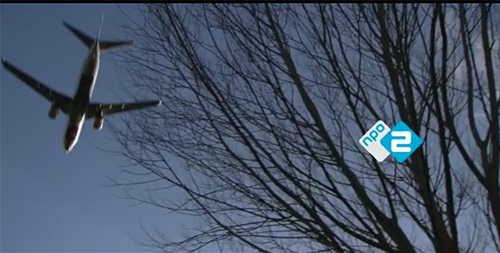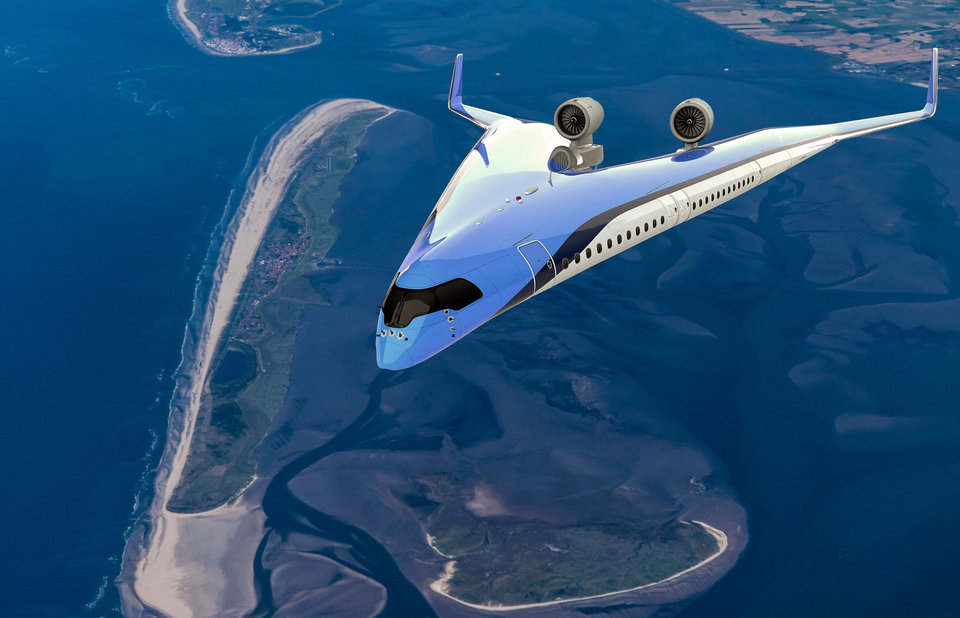Faster and more radical innovation essential for climate-neutral aviation in 2050
The NRC of 23 June2021 contained an article claiming that the aviation sector cannot innovate its way out of the climate crisis (‘De luchtvaart kan zich niet uit de klimaatcrisis innoveren’). The article was written in response to a factsheet and presentation that two scientists gave to the Dutch House of Representatives. The scientists paint an honest picture, but we do not share the conclusion that the journalist came to. On the contrary: with faster and more radical innovation the aviation sector can be made climate neutral by 2050.
Factsheet and presentation to the House of Representatives
At the request of the House of Representatives, two scientists, Paul Peeters (Breda University of Applied Sciences) and Joris Melkert (TU Delft), produced a factsheet on making aviation more sustainable (Factsheet Verduurzaming Luchtvaart) and gave a presentation on this during a technical briefing in the House of Representatives. This factsheet was an update of a previous version from 2018. The factsheet contains factual information on the route to making aviation more sustainable and presents an impartial picture of the possibilities and challenges of technical innovations in his area, for which both scientists make several recommendations.
According to the article in the NRC, the author came to the following conclusion: “The government has overly high expectations of technological innovations such as aircraft powered by used cooking oil or electricity from batteries for making aviation more sustainable. Only by reducing flying considerably can aviation in the Netherlands make an honest contribution to the climate goals” and “The only thing we can still do to reduce the impact on the climate is for all of us to fly far less.” This conclusion is incomplete. Our conclusion from the factsheet is that it is precisely innovations that can make aviation climate-neutral. And we feel that this route has a far greater chance of success than expecting ‘the world’ to fly less.
The right innovations make aviation climate-neutral
First of all, we are sceptical about the feasibility of ‘flying far less’. As the factsheet also states (in the introduction), it is expected that in 2024 aviation will have returned to 2019 levels, after which there will be ‘progressive growth'. Before the pandemic, the annual growth of passenger kilometres was 4 to 5 % per year. Of course less flying means less emissions. And of course it is important to make conscious choices in order to prevent unnecessary flying. But can we count on people all over the world drastically reducing flying in the coming years? We cannot predict how people will behave, but we do know that the world population is growing and a growing number of people have the financial means and the desire to fly.
Our conclusion from the factsheet is that it is precisely innovation that we need to invest in. The factsheet states that the pace and types of innovation at present are insufficient to make aviation climate-neutral by 2050. But that does not mean we should sit back and do nothing. On the contrary: what we need are faster and more radical developments. For example, new types of extremely energy-efficient aircraft, use of 100% sustainable energy, new climate-neutral logistical operations in the sector, and sustainable and circular production and life cycle of aircraft.
The conclusions and recommendations in the factsheet (see also the conclusions in the technical briefing, from 0.49 min) concur:
- By far the most promising options are: e-fuels, hydrogen and fuel cell-powered aircraft
- Opportunities for the Dutch knowledge industry: hydrogen technology, energy technology, fuels and refining, fuel cell technology, aircraft construction
- E-fuels: after the pilot schemes, consider setting up large-scale production in desert countries
- There is no “silver bullet” therefore invest in multiple aspects:
- We need more research and development (a National Research and Development Programme for Sustainable Aviation)
- We need to replace existing aircraft quicker
- We need to use “drop-in” alternative fuels
- We need to fly more direct routes (Single European Sky)
- We need to compensate (ETS, CORSIA and more)
- We need more social pressure (+legislation)
- We need to stop the exponential growth
The factsheet gives an honest – and sobering – picture of how difficult it is to make aviation more sustainable. It also shows that there are many technological challenges that we need to overcome and that this comes at a price. But: we are keen to take up the challenge and we are convinced that we will have a climate-neutral aviation sector by 2050, precisely through fast and radical innovation.



